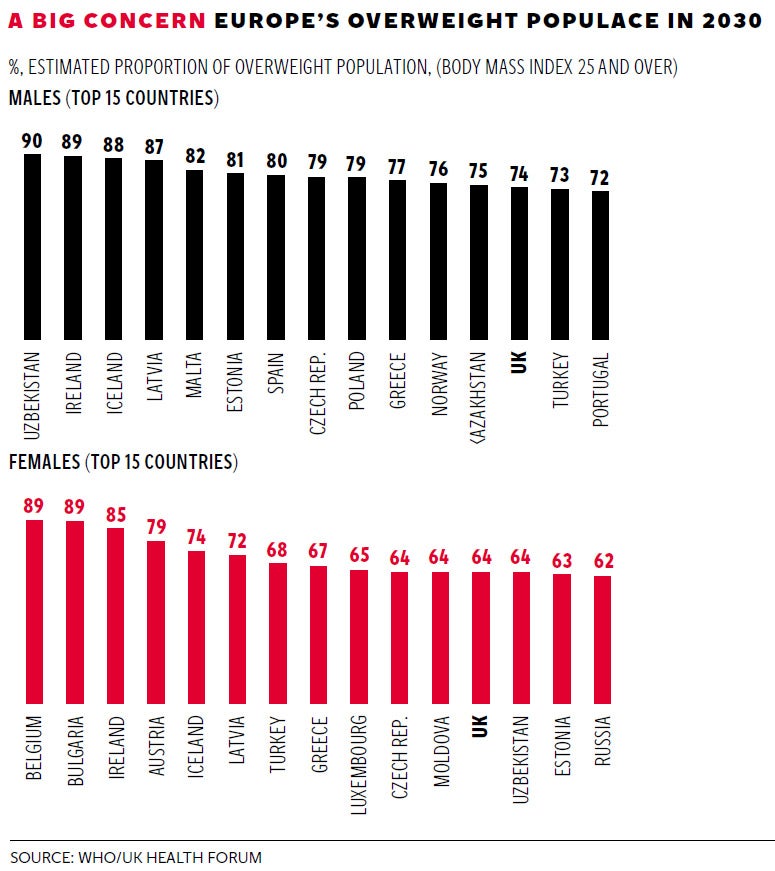Cancer sufferers should lose weight to beat disease, Harvard scientists believe
'It will be the largest study that’s ever tested the impact of weight loss on cancer– any form of cancer. We are very hopeful'

Cancer patients who lose a small amount of weight can improve their survival chances by up to 20%, a research team from Harvard Medical School believe.
The medical scientists are launching the world's biggest investigation into the impact of diet on breast cancer, based on preliminary research which suggests moderate exercise could be even more crucial than previously thought in fighting off the disease.
The news comes as the world faces a growing obesity crisis. One in three people globally are obese, and no country has successfully reduced obesity rates for 33 years.

The World Health Organisation predicts three in every four men and two in every three women in the UK will be overweight by 2030.
An excess of fat tissue promotes the circulation of oestrogen, insulin and leptin through the body. These three hormones, essential in small amounts, can also fuel the growth of cancerous tumours.
Though the empirical research project is yet to be completed, the scientists believe female cancer sufferers who lose 10% of their body weight are 20% more likely to be alive at the end of a five-year period.
Previous studies by other researchers have found strong evidence that a small decrease in body weight correlates to a significant drop in the presence of cancer-triggering hormones.
But the Harvard survey will move on from this preliminary research into uncharted territory, and place an unprecedented focus on the impact of weight loss once cancer has already been detected.
Dr Jennifer Ligibel, who will be leading the trial, said: "It will be the largest study that’s ever tested the impact of weight loss on cancer– any form of cancer. We are very hopeful.
"There’s very strong preliminary evidence from population studies, from animal pre-clinical studies, but it’s never been tested in people before."
A total of 13,200 women with breast cancer will participate in the trial, and half of these will be told they must exercise five times a week and consume no more than 1500 calories daily.
If the findings play out as expected when the trial comes to an end in 2021, cancer sufferers can expect to be routinely prescribed an exercise routine and a slimmed-down diet.
Join our commenting forum
Join thought-provoking conversations, follow other Independent readers and see their replies
Comments